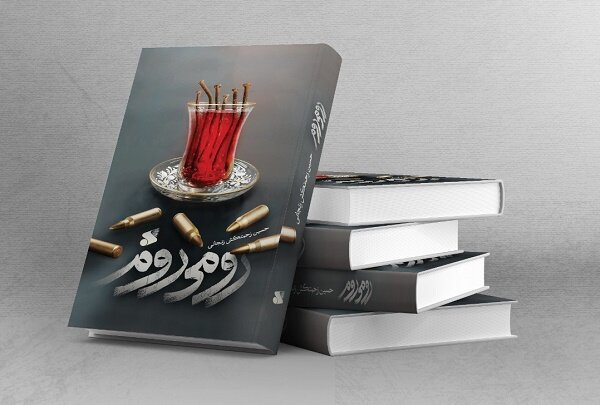A strange story of the reunion of an Iranian and an Iraqi soldier on the Arbaeen walk

The book “Rumi-e Rum” by Hussain Zahmatkesh, has such a great plot that caused it to be sold extremely well within two months of its publication.
It is an interwoven story of two characters named "Haj Arsalan," the Iranian soldier, and "Barzan Al-Khazarji," the Iraqi soldier, who were both present in the biggest classic war in modern history, and now they meet again and remember each other in the Arbaeen walk.
* What were your requirements to write this book?
We should consider that“Rumi-e Rum” is just a novel, not based on history or documentary. There are some standards and requirements in storytelling that a writer should consider, and by requirements, I mean when the author feels that he cannot convey his message to the audience except in the form of a story, and it’s the same in this book.
I think it is interesting that the two sides of the story's challenge face each other again after many years in the Arbaeen walk; one Iranian and one Iraqi; One host and one guest.
* Where did you get the inspiration of writing this book?
The glory of the Arbaeen pilgrimage formed the idea in my mind. When I saw the beauty of it in the media, and the enthusiasm among the people of all countries for this great ritual, I said to myself that this huge event should not be ignored.
People with all tastes and with all the differences they have in appearance, skin color, language, and culture, side by side, go and return an eighty-kilometer route. There, there is no difference between rich and poor and Iraqis are really good hosts for pilgrims. But during all these years that the Arbaeen walk is held, the question of what really happens between the two countries of Iran and Iraq has always occupied my mind and I decided to write about it.
* How much did you pay attention to the formal and technical elements of story writing in writing your book?
It’s impossible to write a novel without considering the technical elements! Also, I believe that story and religion can create a good novel at the highest point, and a religious novel should not leave any questions unanswered.
* Considering the fact that a novel is mostly based on imagination, how much did you use real facts or documents?
Many of the events in this novel, such as the Mersad operation, are based on documents and reality, and I have tried my best to pay attention to the temporal and spatial setting in its narration.
* What feedback have you received from the audience so far?
Only two months after the publication of the book, it became a bestseller! And, I saw good feedback on social media as well.
